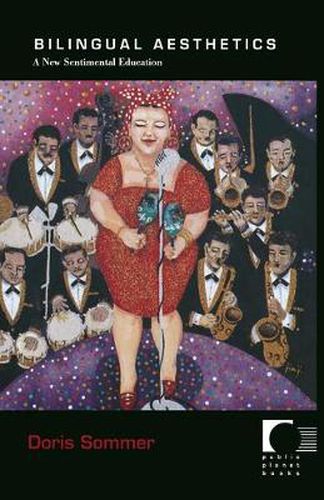Readings Newsletter
Become a Readings Member to make your shopping experience even easier.
Sign in or sign up for free!
You’re not far away from qualifying for FREE standard shipping within Australia
You’ve qualified for FREE standard shipping within Australia
The cart is loading…






An analysis of the changing status of bi- and multi-lingualness in relation to issues of citizenship, ethnicity, and diversity Draws on thinking about humour and language by a range of philosophers and others, including Sigmund Freud, Immanuel Kant, Ludwig Wittgenstein, Hannah Arendt, and Mikhail Bakhtin Learning a second language entails some unease; it requires a willingness to make mistakes and work through misunderstandings. Renowned literary scholar Doris Sommer argues that this inevitable awkwardness should not just be tolerated - it should be embraced. Bilingualism, Sommer contends, is serious fun. In Bilingual Aesthetics she invites readers to make mischief with meaning, to play games with language, and to allow errors to stimulate new ways of thinking. As she says, today’s global world has outgrown any one-to-one correlation between a people and a language. Liberal democracies can either encourage difference or stifle it through exclusionary policies. Bilingual Aesthetics is Sommer’s passionate call for citizens and officials to cultivate difference, to realise that those precarious points of contact resulting from mismatches between languages, codes, and cultures are the lifeblood of democracy. Sommer draws on thinking about humour and language by a range of philosophers and others, including Sigmund Freud, Immanuel Kant, Ludwig Wittgenstein, Hannah Arendt, and Mikhail Bakhtin. In declaring the merits of allowing for crossed signals, Sommer sends a clear message: Making room for more than one language is about value added, not about remediation. It is an expression of love for a contingent and changing world.
$9.00 standard shipping within Australia
FREE standard shipping within Australia for orders over $100.00
Express & International shipping calculated at checkout
An analysis of the changing status of bi- and multi-lingualness in relation to issues of citizenship, ethnicity, and diversity Draws on thinking about humour and language by a range of philosophers and others, including Sigmund Freud, Immanuel Kant, Ludwig Wittgenstein, Hannah Arendt, and Mikhail Bakhtin Learning a second language entails some unease; it requires a willingness to make mistakes and work through misunderstandings. Renowned literary scholar Doris Sommer argues that this inevitable awkwardness should not just be tolerated - it should be embraced. Bilingualism, Sommer contends, is serious fun. In Bilingual Aesthetics she invites readers to make mischief with meaning, to play games with language, and to allow errors to stimulate new ways of thinking. As she says, today’s global world has outgrown any one-to-one correlation between a people and a language. Liberal democracies can either encourage difference or stifle it through exclusionary policies. Bilingual Aesthetics is Sommer’s passionate call for citizens and officials to cultivate difference, to realise that those precarious points of contact resulting from mismatches between languages, codes, and cultures are the lifeblood of democracy. Sommer draws on thinking about humour and language by a range of philosophers and others, including Sigmund Freud, Immanuel Kant, Ludwig Wittgenstein, Hannah Arendt, and Mikhail Bakhtin. In declaring the merits of allowing for crossed signals, Sommer sends a clear message: Making room for more than one language is about value added, not about remediation. It is an expression of love for a contingent and changing world.